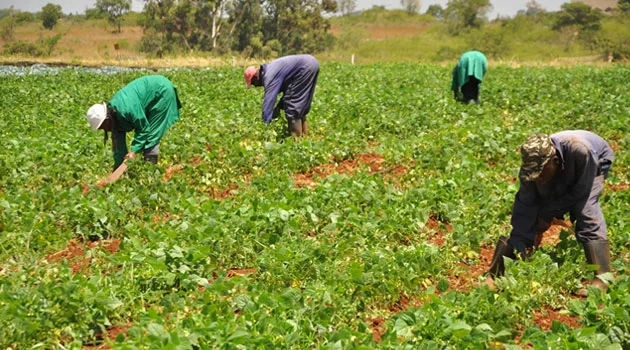Permanent Secretary, Niger Ministry for Agriculture, Dr Mathew Ahmed, has advocated the provision of subsidy on farm inputs for farmers in the country
According to him, this is to bolster food production and address the shortage of food in the country.
The permanent secretary made the call in an interview with the News Agency of Nigeria (NAN) in Minna on Sunday
He said to increase food production, the federal and state governments should continuously subsidise farm inputs for the farmers to enable them engage in an all-year-round farming.
Ahmed added that the provision of irrigation facilities for the farmers to farm three times a year would increase productivity and improve the economy.
He said the Gov. Umaru Bago-led administration has embarked on a massive agricultural revolution by procuring 1,000 tractors, 10,000 power tillers and 10,000 hand weeders for farmers in the state.
He added that the state government had also procured 100 combined harvesters, simple farm equipment that would allow women and youths to participate in agriculture.
The permanent secretary also said the government had provided 100 pivot irrigation equipment for three seasonal farming, taking advantage of arable land for continuous production of crops.
He said the government was currently cultivating one million hectares of land, adding that each local government was to develop 10,000 hectares.
Also, each civil servant was given one hectare to plant priority crops.
Ahmed said rolling out sustainability intervention programmes in agriculture was a profitable business, adding that agriculture was contributing to the state’s Gross Domestic Product (GDP).
He added that the state government was going into public-private partnership with Niger Foods for the farmers to have access to mechanisation, financial institutions to access credit as well as bring investors og agro-inputs for smallholder farmers.
Ahmed said the state government was making efforts to secure the farmers and crops by providing an enabling environment for them to insure their crops with insurance firms to enable them recover from losses in case of natural disasters.
He added that farmers that would be working with Niger Foods in collaboration with the state Agricultural and Mechanisation Development Authority (NAMDA) would be insured with the state contributory health scheme.
According to the permanent secretary, this will enable farmers to access healthcare service in case they are beaten by snakes, scorpions or wounded in the course of farming.
On the efforts of the state government to tackle insecurity, Ahmed said the Bago-led administration had created Ministries for Homeland Security and Nomadic Affairs to address farmers/herders conflicts.
He said the creation of the ministries was to ensure every community was safe from banditry and kidnapping activities across the 25 local government areas.
Ahmed said the governor also met with traditional leaders on a regular basis to look at issues of security and had strengthened vigilance groups to work with security agencies to enable the farmers cultivate crops for more production to address the food crisis.
Similarly, in an effort to address food security, the Nasarawa government says it has commenced cultivation of a 10,000 hectares farm for rice, sesame, millet and maize in Jangwa, Awe Local Government Area of the state.
Gov. Abdullahi Sule, made this known shortly after inspecting the progress in the farm on Sunday.
He said it was in line with the food security initiative of the renewed hope of the administration of President Bola Tinubu.
Sule said that Nasarawa state was endowed with arable land with a significant number of its people making a living through agricultural practices.
“At the moment, we have started with rice and we will later plant sesame, maize and millet,” he said.
Sule said that the project was under the Nasarawa Agricultural Development Programme (NADP).
He added that local farmers would be incorporated through an out-growers system that would allow them to benefit from seedlings and other farm inputs, while the government serves as the off-taker.











